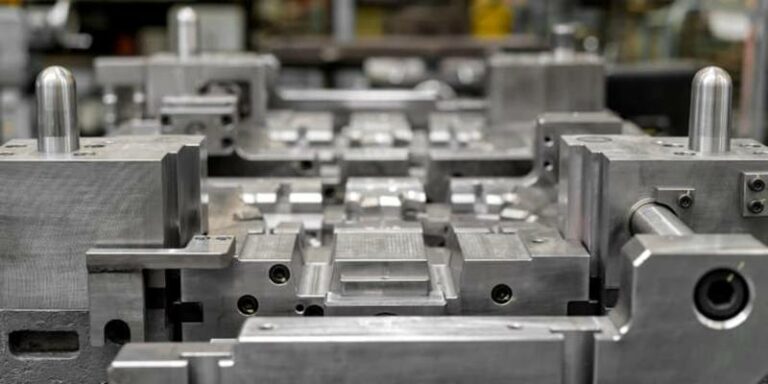About Stahl Specialty Company
About Stahl Specialty Company
Blog Article
4 Easy Facts About Stahl Specialty Company Shown
Table of Contents4 Simple Techniques For Stahl Specialty Company3 Easy Facts About Stahl Specialty Company ShownTop Guidelines Of Stahl Specialty CompanyThe Single Strategy To Use For Stahl Specialty CompanyStahl Specialty Company Things To Know Before You Get This
The subtle distinction hinges on the chemical content. Chemical Comparison of Cast Light weight aluminum Alloys Silicon promotes castability by lowering the alloy's melting temperature level and enhancing fluidness throughout casting. It plays a vital role in allowing intricate molds to be loaded properly. Furthermore, silicon adds to the alloy's stamina and put on resistance, making it valuable in applications where resilience is important, such as automobile parts and engine parts.It also improves the machinability of the alloy, making it much easier to refine into finished products. In this way, iron adds to the overall workability of light weight aluminum alloys.
Manganese adds to the toughness of aluminum alloys and enhances workability. Magnesium is a lightweight aspect that offers stamina and influence resistance to aluminum alloys.
Zinc improves the castability of light weight aluminum alloys and helps regulate the solidification process during spreading. It boosts the alloy's stamina and solidity.
The Ultimate Guide To Stahl Specialty Company
Because aluminum-silicon alloys have excellent casting homes, high gas residential or commercial properties, simple procedures, and excellent deterioration resistance, aluminum-silicon alloys are most typically made use of in the die-casting market in the house and abroad. At the same time, aluminum-silicon alloys are also fairly very early and extensively acknowledged alloys developed and utilized in die-casting. After continuous research and improvement, the majority of the present international mainstream aluminum-silicon alloys have been wrapped up and are absolutely nothing greater than A356, A360, A380, ADC12, B390, and A413.
The main thermal conductivity, tensile strength, yield toughness, and prolongation differ. Select ideal resources according to the efficiency of the target item produced. Among the above alloys, A356 has the greatest thermal conductivity, and A380 and ADC12 have the most affordable. The tensile limitation is the contrary. A360 has the ideal yield toughness and the highest elongation price.

9 Easy Facts About Stahl Specialty Company Shown
In precision spreading, 6063 is appropriate for applications where complex geometries and high-quality surface coatings are vital. Examples consist of telecommunication units, where the alloy's superior formability permits streamlined and cosmetically pleasing layouts while maintaining structural stability. In a similar way, in the Lights Solutions industry, precision-cast 6063 parts develop classy and effective lighting fixtures that need elaborate shapes and great thermal performance.
(https://sketchfab.com/stahlspecialc)
It causes a finer surface area finish and far better corrosion resistance in A360. The A360 displays remarkable elongation, making it excellent for complicated and thin-walled parts. In precision spreading applications, A360 is appropriate for industries such as Consumer Electronic Devices, Telecommunication, and Power Tools. Aluminum Castings. Its improved fluidity permits detailed, high-precision parts like smart device housings and communication tool housings.

In accuracy casting, aluminum 413 beams in the Customer Electronics and Power Equipment page markets. It's frequently used to craft elaborate elements like smart device real estates, video camera bodies, and power device cases. Its precision is exceptional, with tight resistances up to 0.01 mm, guaranteeing flawless item assembly. This alloy's remarkable corrosion resistance makes it an excellent selection for outdoor applications, making sure long-lasting, durable items in the pointed out industries.
The 2-Minute Rule for Stahl Specialty Company
The aluminum alloy you select will significantly affect both the casting process and the properties of the last item. Since of this, you need to make your decision thoroughly and take an informed approach.
Determining the most appropriate aluminum alloy for your application will certainly indicate evaluating a wide selection of qualities. The initial classification addresses alloy features that impact the production process.
The alloy you select for die casting directly influences several facets of the casting process, like just how easy the alloy is to collaborate with and if it is prone to casting flaws. Hot splitting, also understood as solidification breaking, is a typical die spreading defect for light weight aluminum alloys that can lead to internal or surface-level tears or fractures.
Some Known Details About Stahl Specialty Company
Certain light weight aluminum alloys are a lot more at risk to warm splitting than others, and your selection needs to consider this. Another usual flaw found in the die casting of aluminum is pass away soldering, which is when the actors adheres to the die wall surfaces and makes ejection hard. It can harm both the actors and the die, so you need to seek alloys with high anti-soldering buildings.
Rust resistance, which is already a noteworthy attribute of light weight aluminum, can differ significantly from alloy to alloy and is a vital characteristic to consider relying on the ecological conditions your product will certainly be subjected to. Use resistance is another home typically looked for in light weight aluminum items and can distinguish some alloys.
Report this page